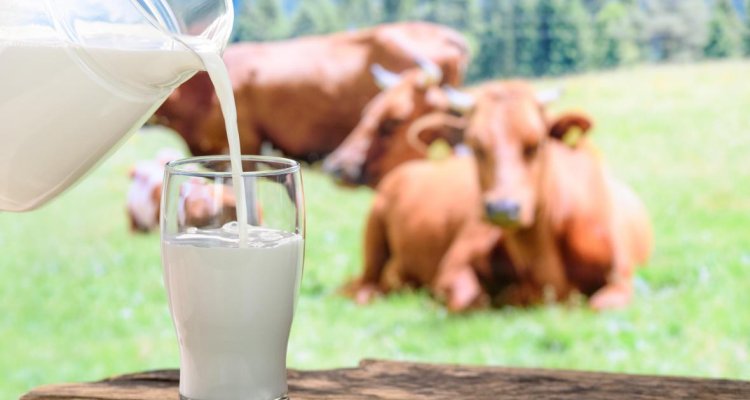
Project
Effects of bovine milk on human immune functioning
Can bovine milk and, in specific the milk immunoglobins (bIgs) support human immune function to better respond to infections and help prevent allergies? What are components that such immune support? Via which mechanisms and at what levels do bovine milk components support immune function? We are trying to find answers to some of these questions.
Background
Bovine milk is a nutrient-rich liquid and serves as a main part of the human diet. It contains numerous functional components that are important not only for their nutritional value but for their immunomodulatory properties. Milk contains immunoglobulins, cytokines, antibacterials, enzymes, hormones, growth factors, and other bioactive peptides that can interact with the consumer immune and non-immune cells and modulate immunological processes.
Project description
Over the years four PhD students have worked on this topic, Gerco den Hartog, Marloes van Splunter, Olaf Perdijk, and Mojtaba Porbahaie. We have especially worked on immunological effects of milk oligosaccharides, lactoferrin, TGF-, and immunoglobulins (bIgG). This work has been done in vitro as well as in vivo intervention studies (Oral vaccination and ETEC inifectious challenge together with NIZO). Several of these studies were done in close collaboration with FrieslandCampina.
Key findings so far are that bovine IgG, TGF-, IL-10, and lactoferrin are functionally active on human immune cells, and that oligosaccharides have effects on microbiota composition and indirectly via production on SCFA on immune function and interstinal barrier funxtion as well.
Publications
-
Short-chain fatty acids inhibit the activation of T lymphocytes and myeloid cells and induce innate immune tolerance
Beneficial Microbes (2023), Volume: 14, Issue: 4 - ISSN 1876-2883 - p. 401-419. -
Low doses of diarrhoeagenic E. coli induce enhanced monocyte and mDC responses and prevent development of symptoms after homologous rechallenge
PLoS ONE (2023), Volume: 18, Issue: 1 January - ISSN 1932-6203 -
Direct Binding of Bovine IgG-Containing Immune Complexes to Human Monocytes and Their Putative Role in Innate Immune Training
Nutrients (2022), Volume: 14, Issue: 21 - ISSN 2072-6643 -
The Effect of Nutritional Intervention with Lactoferrin, Galactooligosacharides and Vitamin D on the Gut Microbiota Composition of Healthy Elderly Women
Nutrients (2022), Volume: 14, Issue: 12 - ISSN 2072-6643 -
Babies, Bugs, and Barriers : Dietary Modulation of Intestinal Barrier Function in Early Life
Annual review of nutrition (2022), Volume: 42 - ISSN 0199-9885 - p. 165-200. -
A Double‐Blind, Randomized Intervention Study on the Effect of a Whey Protein Concentrate on E. coli‐Induced Diarrhea in a Human Infection Model
Nutrients (2022), Volume: 14, Issue: 6 - ISSN 2072-6643 -
Ingestion, Immunity, and Infection : Nutrition and Viral Respiratory Tract Infections
Frontiers in Immunology (2022), Volume: 13 - ISSN 1664-3224 -
Bovine Milk-Derived Extracellular Vesicles Inhibit Catabolic and Inflammatory Processes in Cartilage from Osteoarthritis Patients
Molecular Nutrition and Food Research (2022), Volume: 66, Issue: 6 - ISSN 1613-4125 -
Flood Control : How Milk-Derived Extracellular Vesicles Can Help to Improve the Intestinal Barrier Function and Break the Gut–Joint Axis in Rheumatoid Arthritis
Frontiers in Immunology (2021), Volume: 12 - ISSN 1664-3224 -
Enhanced Uptake of Processed Bovine β-Lactoglobulin by Antigen Presenting Cells : Identification of Receptors and Implications for Allergenicity
Molecular Nutrition and Food Research (2021), Volume: 65, Issue: 8 - ISSN 1613-4125